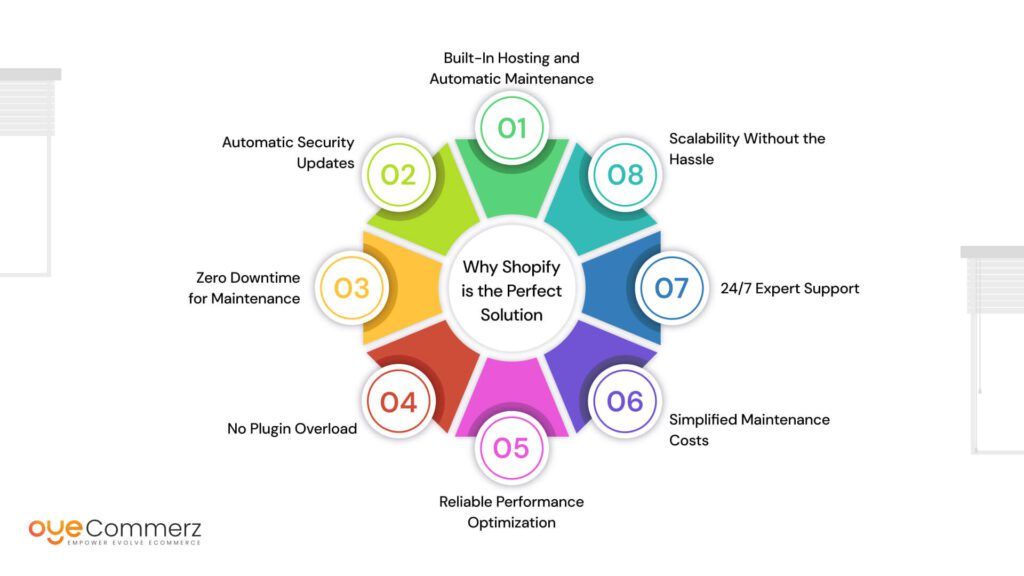In the constantly changing world of online retail, selecting the best system is crucial for your company’s growth. If you’re presently using WP and thinking about a migration to Shopify, you’re not alone. Many businesses are making this transition to utilize Shopify’s powerful capabilities, user-friendliness, and expandability. This guide will take you through the process of migrating from WordPress to this platform smoothly, making sure that you realize your eCommerce potential.
Why Migrate from WP to this platform?
Prior to starting the migration process, it’s crucial to realize why this change can be advantageous for your eCommerce business:
Intuitive Design: Shopify offers an intuitive system that streamlines store management, making it easier for non-technical users.
Flexibility: As your company grows, Shopify can accommodate higher visitors and sales without sacrificing efficiency.
Built-in Tools: Shopify comes with pre-installed features for SEO, analytics, payment management, and much more, reducing the requirement for several plugins.
Enhanced Security: With Shopify, you utilize strong security measures that secure confidential customer data.
Steps for a Smooth Migration
Migrating your online store from WP to Shopify requires key phases.
Here’s how to facilitate a hassle-free transition:
Outline Your Migration Strategy
Start by mapping out your migration strategy. Identify which aspects of your current site you wish to migrate, such as:
Product data
User details
Order history
Posts
Select the Best Migration Option
Considering your needs, choose a migration package that aligns with your business. Migration OyeCommerz migration packages experts offers several plans:
Starter Package: Ideal for compact stores with minimal products.
Standard Migration Package: Appropriate for medium-sized businesses with intermediate demands.
Advanced Plan: Perfect for larger stores requiring extensive customization.
Save Your Content
Before starting the migration, guarantee that you have a complete copy of your WP site. This step is essential in situations where anything goes awry during the move.
Export Your Data from WP
Utilize plugins or custom scripts to extract essential content from your WP site:
Inventory
Customers
Transactions
Content pieces
Import Data into Shopify
After you have your information exported, employ Shopify’s import tools or third-party apps to migrate your data into your Shopify store. Confirm that all content is properly structured and arranged.
Personalize Your Shopify Store
After uploading content, adjust your Shopify site’s design to align with your business goals. Think about hiring a designer if you want advanced customization.
Configure Checkout Systems and Delivery Settings
Configure transaction methods and logistics options in Shopify to create a user-friendly transaction experience for customers.
Implement SEO Best Practices
To maintain your search engine rankings during the migration:
Use 301 link updates from existing URLs to migrated ones.
Revise metadata.
Adjust visual content and copy for better ranking.
Evaluate Your Migrated Platform
Ahead of publishing, extensively review your migrated site. Identify any discrepancies, checkout failures, or incomplete files.
Go Live Your Platform
After everything benefits of Shopify over WordPress is in ready, it’s the moment to go live! Share the change to your customers and encourage them to explore the new features of your Shopify store.
Post-Migration Guidance
Following releasing your updated store, regular support is essential. Explore partnering with experts who can help with:
Technical support
Marketing strategies
Improvement strategies
Conclusion
Migrating from WordPress to Shopify can be a crucial decision for your online retail. By using this guide and utilizing experts like those offered by OyeCommerz, you can guarantee a effortless transition that enhances your business potential. Adapt to the opportunity and discover the potential of Shopify today!
